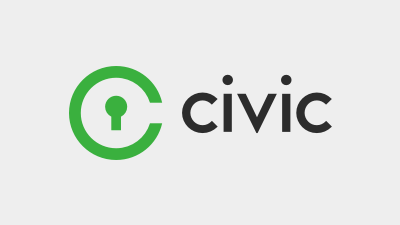Why I think an identity verfication blockchain is a sound investment
Let's move away from BTC and ETH for a moment and talk about blockchain as a nascent technology.
I've been spending the last month researching blockchain technology and its various public and private applications, and it's clear to me that many industries are not looking at a 'tokenized' approach to fundraising. This will leave speculators without an investment vehicle, aside from finding their parent company's stock on the dinosaur stock exchanges. This, of course, takes a lot of the fun out of blockchain if you can't bet on the winners and losers in the democratic way we are becoming accustomed to.
The Steemit community is likely more interested in tech that is tokenized, and in the identity verification space, that would be Civic.
I believe that the first startups that will realize widespread adoption in blockchain are identity verification technologies. Many people have heard of Civic, but the fact is there are (as of Feb 2017) 21 different competitors jockeying in this space, and only a couple are going to be winners, and those, after proving the concept, may very well may be bought up by a company like Google.

Why is identity verification important?
Because identity verification is the blockchain that will integrate into every other blockchain. This is the logical starting point. Right now, we are relying on various Web 2.0 protocols to interface with the blockchain (Web 3.0). We fund our exchanges using online banking. We sign up for accounts using SMTP (Email), and we transact using banking/credit protocols. This means it's very expensive to go back n forth between 2.0 and 3.0, and this is reflected in the rates of exchange. It's also not very secure.
But seamless integration isn't the best feature of identity verification on the blockchain. Solving the 'Big Brother' dilemma is what really sets it apart. Trustless privacy. One of the biggest pain points of centralized data capture is that all of the data sits on a centralized server, can be (and often is) hacked and exploited. On top of that, people have a general discomfort with the idea of having their private information queryable by any nameless government official. This solves that problem by combining the immutable security of the blockchain, with the decentralized and private nature of it.
So that's why I'm long on identity verification software on the blockchain. So to recap..
1.) Natural starting point for the entire Web 3.0
2.) Less friction
3.) Private (not to be confused with anonymous)
4.) Immutable
Now the big question is, which one is going to win? Maybe someone else knows, because I would love to find out.
You've been UpVoted via the UpVote Experiment 002 Bot. Depending on my VP & the price of STEEM you should get a $.01-$.03 for your trouble.
Read more about this experiment here.
Thank You - @blueorgy